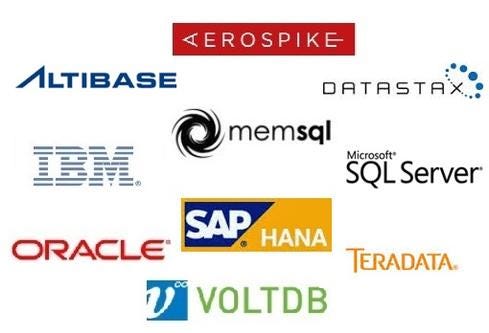HP Goes Open Source For Haven Predictive Analytics
HP develops Haven Predictive Analytics for big data, then releases it as open source software.


10 In-Memory Database Options Power Speedy Performance
10 In-Memory Database Options Power Speedy Performance (Click image for larger view and slideshow.)
HP has released a product that checks off many of the boxes on the hot-technology list for 2015: big data, business intelligence, predictive analytics, and open source.
Haven Predictive Analytics uses an HP contribution to the open-source community -- Distributed R -- to improve performance of business analytics systems that must churn through vast quantities of data to make sense of complex enterprise systems.
In a Feb. 17 announcement about the new product, HP touted four significant components or functions available in Haven Predictive Analytics:
Distributed R
Data acceleration and native SQL support with HP Vertica
Out-of-the-box-algorithms
Open source
When I spoke with Jeff Veis, vice president of marketing for HP big data software, he spoke for several minutes about the integration with HP Vertica as a key advantage for current HP customers. Vertica, a massively parallel database manager notable for providing SQL access to Hadoop data sets, is a major component of HP's big data offering.
Haven Predictive Analytics brings a set of pre-populated algorithms and programming in languages familiar to both mainstream database administrators and big data engineers to the growing area of predictive analytics.
Sunil Venkayala, senior technical product manager with HP big data software, explained why he thinks a product like this is needed.
"There are two-plus million people who use R to develop data analysis projects," said Venkayala. "There was no comprehensive effort to bring a good, usable framework to the community. Distributed R brings new distributed data structures to R. It's very important in a sense that they're very similar to R because the data scientists are typically not 'deep' programmers. For them, the data structures that let them write their own scripts are critical."
Venkayala also put the relationship between Haven and Vertica in context for business analysts. "Vertica as a platform ties to SQL since SQL is a great language for data preparation. [Analysts] can build models that slide in and out of Vertica and their favorite BI tools. This allows them to bring predictive capabilities to their applications and frameworks."
Veis pointed out that all of this open source flexibility and creativity come with HP Global Support for Vertica customers. For many enterprise customers, the support from a known partner will be as important as the capabilities of the new package as they decide whether or not to deploy Haven.
[ Read about open-source trends in analytics. ]
There was another point that both Veis and Venkayala made throughout our conversation.
Veis said that the fact that Haven was developed in the HP Labs and not purchased or developed through a partnership shows that HP is renewing its traditional focus on research and innovation.
"A company such as Hewlett Packard needed to be a leader in research and not just be a channel for other people's technology. We knew portions of our solutions and offerings had to come from within," Veis told me.
HP Haven Predictive Analytics is available now for free download.
Attend Interop Las Vegas, the leading independent technology conference and expo series designed to inspire, inform, and connect the world's IT community. In 2015, look for all new programs, networking opportunities, and classes that will help you set your organization’s IT action plan. It happens April 27 to May 1. Register with Discount Code MPOIWK for $200 off Total Access & Conference Passes.
About the Author(s)
You May Also Like






